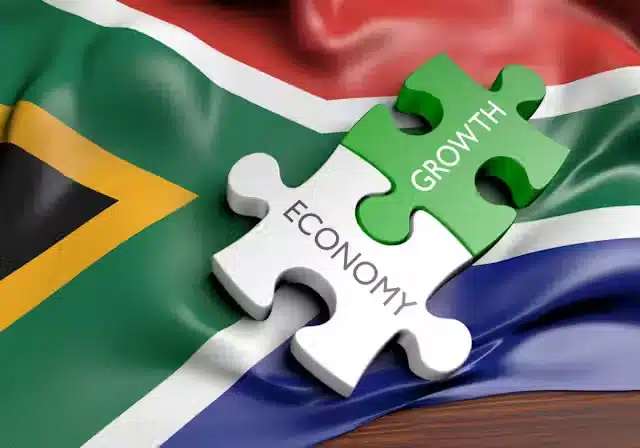Hello,
African economies have been at the mercy of global credit rating agencies, and any efforts to raise loans is usually met with stringent conditions. That’s why the recent move to create s credit rating agency is super important.
What is more important though, is our celebration of African women in Finance.
South Sudan’s economy to contract by 30% as oil revenue plummets
South Sudan’s economy is set to shrink by 30% in the 2024/25 fiscal year, marking its sixth consecutive year of contraction. The collapse in oil production has led to an estimated revenue loss of $7 million per day, severely straining government finances.
As a result, salary payments have been delayed, and spending on essential services such as healthcare and education has been slashed. The Washington-based lender, however, warned that without urgent policy interventions, the country’s economic outlook could deteriorate further.
Everything you need to know about the African Credit Rating Agency
Investors and lenders overwhelmingly rely on the evaluations of the Big Three: Moody’s, Fitch, and S&P Global.In response to perceived injustices in rating African country’s economies, the Africa Credit Rating Agency (AfCRA) was born—the continent’s first-ever credit rating agency. Beyond sovereign ratings, the agency is also expected to assess regional organizations, municipalities, states and private-sector enterprises, helping to expand access to capital for a broader range of African entities.
Unlike traditional rating agencies, AfCRA will not rate countries or corporate organizations outside Africa. AfCRA will be managed and funded by the private sector, operating independently from the African Union (AU). Africa has the resources, expertise, and economic need to make AfCRA work, but success is far from guaranteed.
How Egypt received half of Africa’s total $95 billion FDI in 2024
In 2024, Foreign Direct Investments (FDIs) inflows globally rose by 11% to $1.4 trillion excluding foreign inflows through European conduit economies, FDIs globally were down by 8% compared to the figure for 2023.
Spike in Egypt’s FDI stems chiefly from the development of the Ras El-Hekma peninsula by ADQ, a UAE-based sovereign investment fund for $35 billion, withstanding their economic challenges
Nigeria’s e-invoicing rules to hit companies earning over $66K
The Nigerian Federal Inland Revenue Service (FIRS) is rolling out an e-invoicing system for big companies to improve tax collection. The main concern is whether Nigeria’s infrastructure can handle this digital change
Business organizations are skeptical. If e-invoices are required for each charge, system upgrades could be costly. Data security is another concern but countries like India and Brazil overcame similar challenges, proving that e-invoicing can work
Why Zimbabwe’s new ZiG policy could deter foreign investors, deepen economic instability
In a fresh attempt to boost the adoption of ZiG(Zimbabwe Gold), Zimbabwe’s market regulator has ordered companies to report their earnings in the highly volatile local currency.
Since its introduction in April 2024, ZiG has lost about 96% of its value, forcing Zimbabwe’s central bank to devalue the currency in September, with ZiG’s continued depreciation, companies may struggle to report financial performance accurately, and shareholders—especially foreign ones—will face difficulties assessing true value.
IWD: 17 women powering Africa’s financial future
Meet the women shaping Africa’s financial future through leadership in banking, investment, and corporate finance across key industries
Some of these women are: Risper Alaro – Group Finance Director, Centum Investments, Alice Wathika – CFO, Lake Turkana Wind Power, Hope Lorna Nakhayenze — CFO, dfcu Bank, Mpolaheng Mohlopi — CFO, Lanseria International Airport, Aneshree Naidoo — CFO, Webber Wentzel, Doris Uzoka-Anite – Minister of State for Finance, Nigeria, Oluwatoyin Olaiya — Executive Director, Risk & Compliance, FCMB, Felicity Osafo-Sampong — CRO, Stanbic Bank Ghana
South Africa introduces VAT hikes, stealth tax in revised budget plan
Three weeks after his initial budget plan was rejected by lawmakers, South Africa’s finance minister presents a new proposal with steep tax implications.
the stealth tax—a tax increase that does not come from higher rates, but from inflation pushing workers into higher tax brackets. The government has confirmed that it will not adjust the personal income tax bracket to account for inflation. This means many workers will find themselves paying more tax without actually receiving higher wages, but both coalition and opposition parties of the government have already indicated they will not support the proposed VAT increase.
How this Nigerian insurance company hit $15.2 million in profits in 2024
The total gross profit stood at ₦25.1 billion ($17.13 million) from ₦17.1 billion ($11.2 million) recorded in 2023.
Despite reports of low penetration, insurance companies are recording high revenue and profits and could be higher with the right exposure and marketing, more Nigerians and/or Nigerian businesses may begin to embrace insurance and subscribe to insurance products.
IWD: 15 Women redefining leadership in Africa’s banking sector
Meet the women at the forefront of Africa’s banking leadership, breaking through the glass ceiling to drive sustainable growth, financial inclusion, and innovation across the continent’s diverse regions
Some of them are: Betty Murambadoro – Executive Director, Stanbic Bank, Zimbabwe, Nangula Kauluma – CEO, FNB Retail Banking, Namibia,
Fundi Tshazibana – Deputy Governor, South African Reserve Bank, Diane Karusisi – CEO, Bank of Kigali Group, Rwanda, Mary Mulili – CEO/MD, UBA Kenya, Felicia Boamah – CEO, Mponua Rural Bank, Ghana, Bolaji Agbede – Acting Group CEO, Access Holdings, May Abulnaga – First Sub-Governor, Central Bank of Egypt






